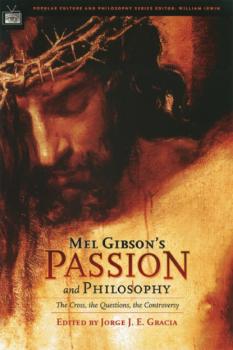Jorge J. E. Gracia
Список книг автора Jorge J. E. GraciaLatinos in America
A first-of-its-kind book that seriously and profoundly examines what it means philosophically to be Latino and where Latinos fit in American society. Offers a fresh perspective and clearer understanding of Latin American thought and culture, rejecting answers based on stereotypes and fear Takes an interdisciplinary approach to the philosophical, social, and political elements of Hispanic/Latino identity, touching upon anthropology, history, cultural studies and sociology, as well as philosophy Written by Jorge J. E. Gracia, one of the most influential thinkers of Hispanic/Latino descent
Cuba before Castro
Although much has been written about Cuba after Castro, relatively little has been written about Cuba before Castro. The political reality of Castro’s Revolution has created a historical void about this period, paying insufficient attention to an important century before 1959. Cuba has become a political punching bag, between supporters and critics of Castro and the Revolution, making it difficult to understand real life in Cuba because of the disproportionate preoccupation with, and monopoly of, the political reality on the island. In spite of some attempts, it continues to be easier and perceived as more pressing, to write about politics rather than the reality that Cubans experienced in their daily lives— their sufferings and celebrations, successes and failures, lives and deaths, and beliefs and disbeliefs. Going for and against the avalanche of information about the political authenticity in and out of Cuba, most Cubans have tended to forget that Cuba is much larger than the perceived reality after Castro’s Revolution. Too many have failed to remember the Cubans who have lived and worked in Cuba in the century before an important period of Cuban history where the nation was forged. Indeed, even limited attention reveals a rich and sophisticated society that calls for study. In this book Jorge J.E. Gracia approaches this situation by telling true stories about some members of his family (Doctor Ignacio Gracia, Maruca Otero, the Marques de Arguelles, and many others) who lived during a culturally rich century before Castro. He hopes to entice historians, academics, tourists and others, to pursue a balanced exploration of the island by telling part of their stories. This enterprise is neither history nor fiction, but memories written by a Cuban who left Cuba when he was eighteen years old and has become a distinguished philosopher in the United States.
Mel Gibson's Passion and Philosophy
Mel Gibson’s The Passion of the Christ has become one of the most controversial films ever made, and it is already a blockbuster of cinematography. Its defenders passionately regard it as one of the most moving and influential pieces of religious art ever created. But its detractors argue with comparable vehemence that the violence and gore it contains, its alleged anti-Semitism, a particular take on the Christian message, and the lack of historical and Biblical accuracy, make it nothing more than a kind of political propaganda. Father Thomas Rosica hailed as one of the great masterpieces of religious art, but the secular humanist Paul Kurtz thinks of it as a political weapon in the hands of the religious right. Film critics are divided in their judgment, giving the film anywhere from no stars to five stars. Regardless of what one thinks of the film, however, its impact both personal and social is beyond question.


